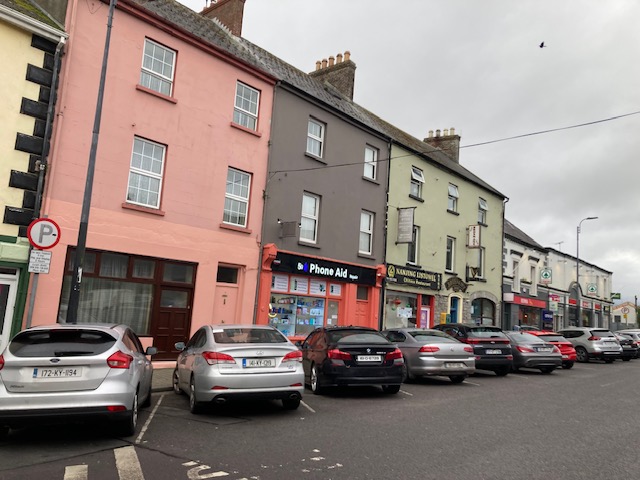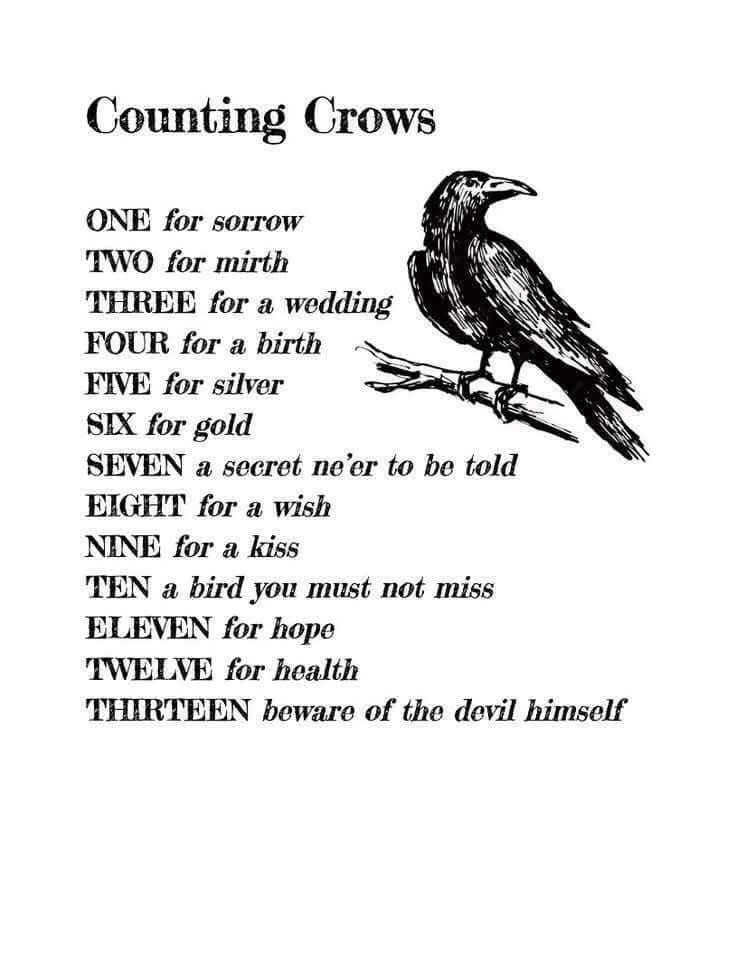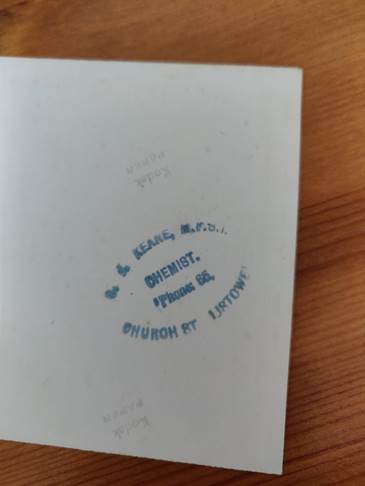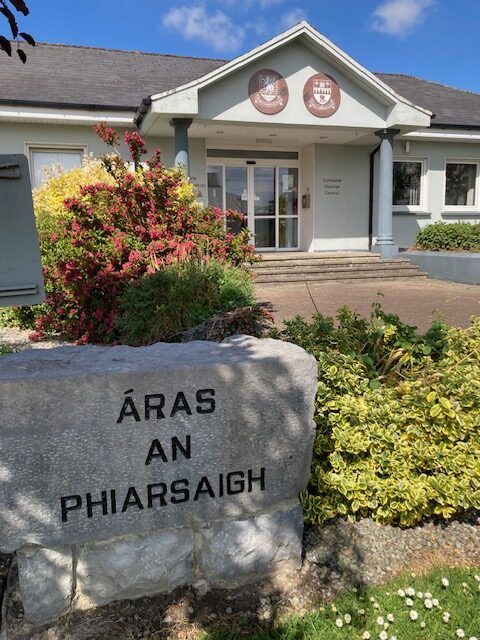
Áras an Phiarsaigh in glorious sunshine in May 2025
<<<<<<<<<<
Patrick Street/ William Street Upper or Pearse Street
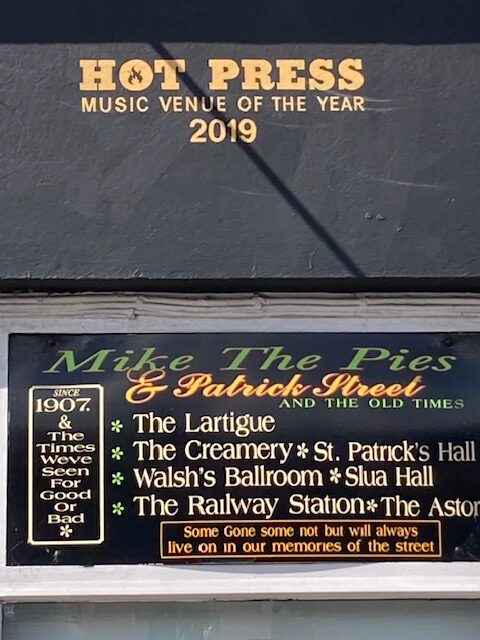
One of the most famous premises on this street, references Patrick Street
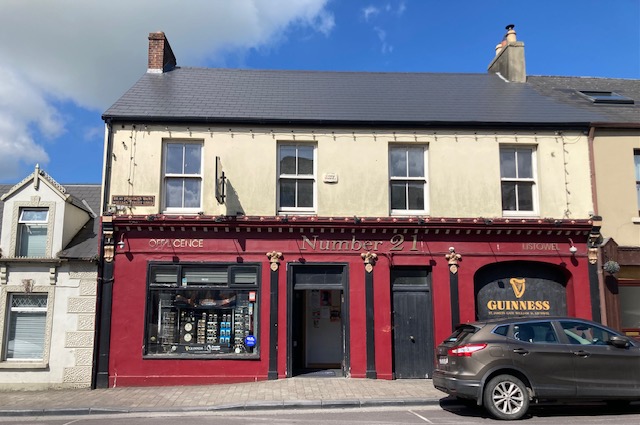
Further along, on the same side of the street is another well known premises.
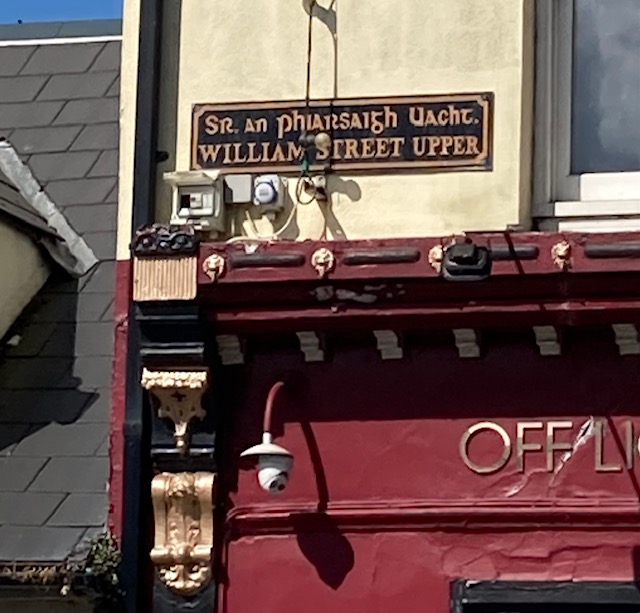
I rest my case.
<<<<<<<<<<
The Horse Chestnut in May
(Mick O’Callaghan teaches us a thing or two about the beloved horse chestnut)

It was Tuesday May 20th, 2025. We were after a sustained period of dry weather and the ground was very dry. Some plants were somewhat stunted in their growth.
I cut all the lawns at home and at our daughter’s house because rain was forecast for the afternoon.
Now that domestic chores were attended to, I betook myself to Courtown Woods for a forest walk and to follow up on the progress of the Aesculus Hippocastanum or, in everyday parlance, The Horse Chestnut Tree.
When I walk in Courtown woods I invariably walk along The Horse Chestnut Walk and take lots of photos of the tree lined avenue. I watched the huge gaunt skeletal trees in winter and longed for some new life to appear on their naked branches. In late February I observed little green buds appearing which morphed into red centred green leaves and then during April and May the large soft green palmate shaped glossy leaves appeared. I photographed each stage of the trees’ development. It is truly a captivating transformation to behold in perfect woodland peace at close quarters in Spring and early summer. Another major benefit is that this colourful nature show is totally free to view.
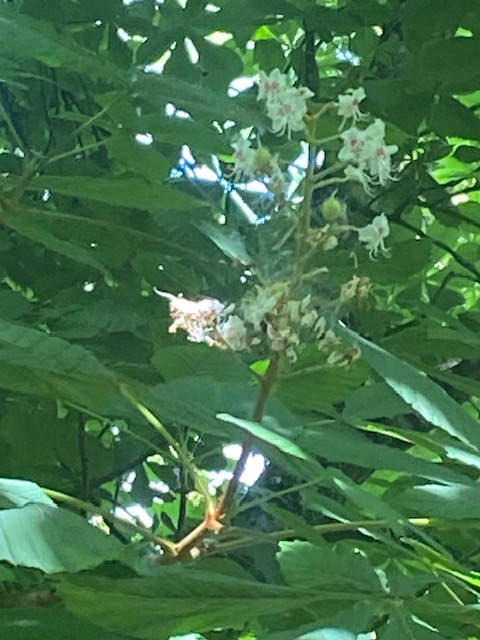
Now as I feast on nature reawakening from its winter hibernation in the peace and solitude of the Courtown woods I recall our school botany classes. I remember teachers and later college lecturers describing the palmate structure of leaves with five or seven leaflets emanating from a single stem and fanning out like fingers. In my own teaching life, I remember collecting leaves from various trees and drying them out between sheets of blotting paper to make scrapbooks. I still have some of them after all the years.

In Kerry we were living in an area where a lot of deer thrived on the higher ground and in Killarney National Park. Teachers described their antlers as being of a palmate structure in our zoology classes.
After that little stroll down memory lane, it is time to return to Courtown forest and my beloved horse chestnut trees, The huge leaves were providing a canopy for the beautiful flowers which are unique. Today I was so lucky because it was so calm, and I got some great photos of the leaves and of the pink and white horse chestnut flowers.

They bloom in upright clusters of flowers called panicles and the bees and other pollinators just love them for their colour and pollen.
Last week when I visited all the clusters were a nice shade of pink but today, I noted a change as an appreciable number were white. This change of colour indicates to the pollinators that the white ones had been pollinated, and the pink ones now needed to be pollinated.

It was the difference in the colour and texture of the leaves that fascinated me most.
When I came home, I examined my photos, and I noted some remarkable colour and texture transformation in the leaves since last week, I also noted that some of the petals of the pollinated flowers were falling to the ground.
The leaves had changed from the soft tender light green leaf to a darker green. They were an entirely different tougher textured version. As the leaves change the next phase in the lifecycle is about to begin. They will start forming the spiky green fruits which will develop into lovely shiny conkers and so another cycle draws to a close and the leaves will fade away and die.

Sadly, today I saw a parent pulling down a full panicle because his child wanted it. As I was passing by the child showed me the lovely flower. I had to tell the parent how much nicer it would have been if it was left there to mature into a conker. He turned to his wife and told her about the conker. She was not interested she said because she was dying for a cup of coffee.
I was on the home straight when a granny with her grandchild and dog were approaching. Granny was oblivious to my presence as she was texting away on her phone when the 3-year-old child shouted, “Granny put away your phone.” Granny continued texting. As they were passing the child shouted again “granny, put away your phone and talk to me” Granny continued walking and texting while the little dog barked and pawed the ground with boredom. I continued walking home
Adults please put away those phones for a while and set the good example. There should be a competence test and a written exam before people could purchase a phone. Their ill use causes a lot of problems.
Anyway, the welcome rain has returned for a brief visit this evening and our arid plants and lawns are relishing it. You’re welcome rain but please don’t hang around too long
As they said in my school days
“A wet and windy May fills the barn with corn and hay.”
Our dry May this year seems to be filling them with top class silage.
<<<<<<<<<
Lidl New Store in June 2025


Foundations coming along nicely
<<<<<<<<<
A Fact
Butterflies taste with their feet.
<<<<<<

